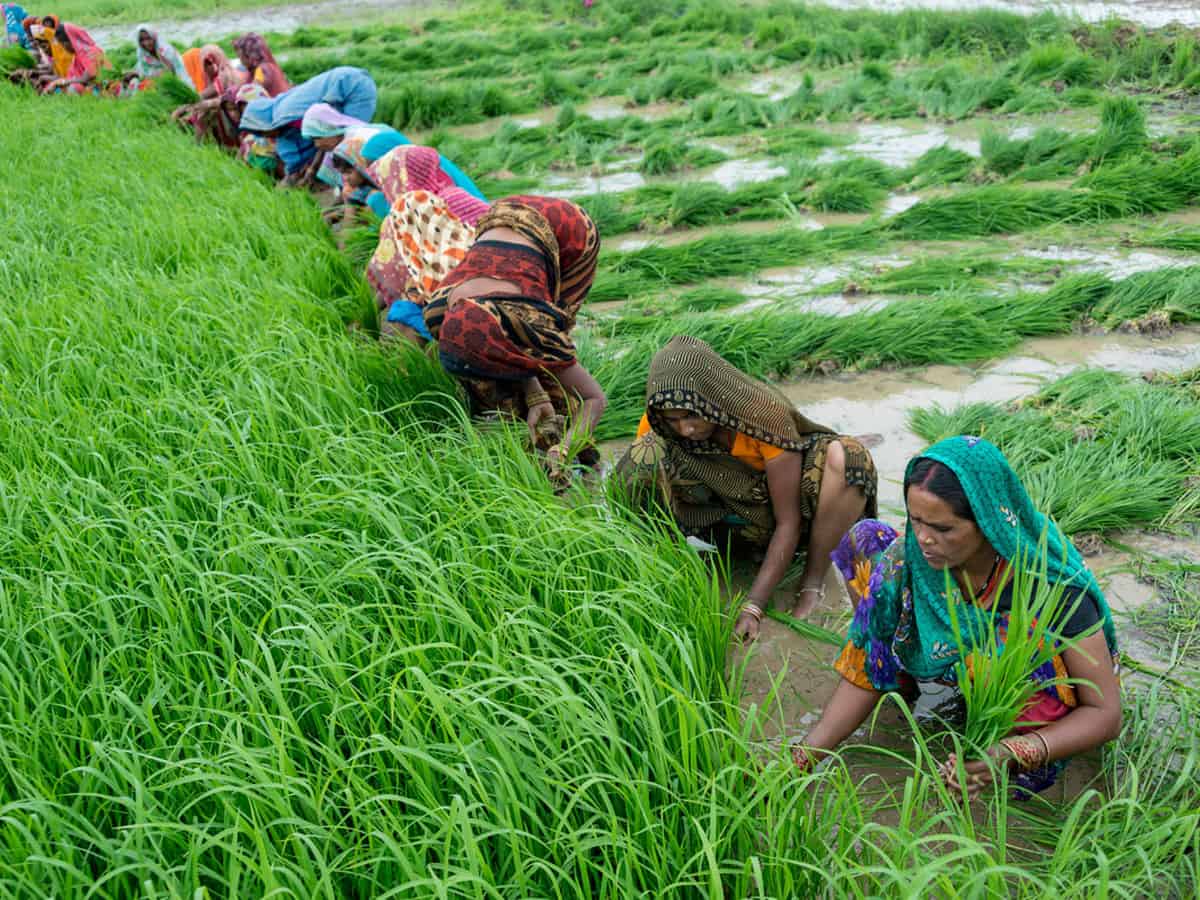
Narasimha Reddy Donthi
Access to food is a socio-economic issue in India. Food production has been heading into crisis, on par with modernization and export-orientation of Indian agriculture. Food scarcity has increasingly become a concern. Tribal area and rural residents, who used to have access to plenty of fruits, tubers and leafy vegetables, find them vanishing due to ecological destruction and GDP-centric growth. Nutrition and micro-nutrient contents in food, necessary for women, old and children, has become limited, scarce and expensive. It has also become an ecological concern. Species of plants and vegetation that were providing food to Indians have been vanishing. Food diversity is also lost. Natural bio-diverse vegetation used to give such food on the platter. Forests had plenty of food. In a drought period, tubers, tree barks and liquid extractions from trees helped hungry people.
Twin effect of ecological destruction and environmental degradation has forced people to depend more on crop-based food, albeit coming at a price. Milk, milk based products such as butter milk, was plenty even before so-called White Revolution. With White Revolution, milk farmers learned to monetize their products, even while milk started becoming scarce in production areas. Animal rights activists for long have been protesting about milk extraction and reduction of these animals to milk producing factories. Milk production has increased. But it is no longer available to village residents where it is produced. Similar is the case with other foods. Fruits and vegetables became export commodities – exported from villages to towns, towns to cities and cities to international markets. Orchards became fenced, with more expensive farms employing guards. Unlike in the past, where common lands had plenty of fruit trees, or a cluster of mango or tamarind or other fruits, horticulture became a lucrative source of income, feeding global supply chains, as the case maybe. Even if the global supply chains rejected them, due to pesticide residues, tonnes of these fruits would end up in mega cities or rot in dump yards but are usually not accessible for poor and needy. Even wild fruits such as custard apple became a source of livelihood and cash income for many poor families. Similar is the situation with vegetables. Why?
Because it is simple economics – those who can pay get it. Entire food structure, thus, has moved and has been moving, towards a system of production, distribution, value addition and consumption, based on a single pivot of ability to pay. Just as many species in nature have been discriminated against, many sections of human population are also being discriminated against by a system that judges access to food, not on the basis of need, but on the basis of ability to pay.
This is what we call commoditization and monetization of natural foods. Once they become monetized, their access to majority of people (including those are involved in its production or gathering) has dried up gradually. Of course, there is the argument that food has to go to markets where there is demand. And, this is value addition, because there is toil and investment behind it. Parallel to this, tribal area and rural residents and disempowered have been losing their purchasing power in various ways, caused by the same ‘developmental’ factors that destroyed the livelihoods and nature-based livelihoods. Overall, over twenty-year period farmers became producers and entrepreneurs, producing only for markets and ended becoming consumers of the same market products. With terms of trade against them, in this production and consumption cycle, farmers have always been losing.
Modern development defined agriculture has been destroying ecology, natural resources, livelihoods and an independent rural economy, turning rich areas into resource-poor, dole dependent and alms seeking situation. Even now, independent areas, including villages, which have fought this model continue to be abundant in food and confident of their independence from a system that dictates who should or should not get food and access to food.
Amidst this, we have COVID-19 and induced lockdowns, shutting down work, production and services. No one is worried about closure of automobile production, but the biggest worry is about food shortages, apart from livelihoods and employment. Food and access to food has become a bigger and larger concern.
Presently, the very factors assailed for years by modern economists and liberal thinkers, especially huge population dependent on agriculture, are becoming advantageous. Land being the primary source for life, owning it has suddenly become critical. Farmers who have land are in an advantageous situation of producing food for themselves and others. However, ironically, consumers and farmers are concerned about future and food, indicating the extent to which ‘dependency’ has been ingrained.
Few farmers in Chattisgarh, Karnataka, Rajasthan and Madhya Pradesh started sharing or bartering their produce with their co-habitants. However, in other places, farmers have been dumping precious food on roads, drains and dirty sewers. Many readers of the news would have felt –Why dump them, why can’t they be distributed?
This is because farmers have been gradually reduced into cogs in the giant global supply chains, producing and delivering at the cost of their lives, families, environment, ecology and economy. The crisis generated by COVID-19 is an opportunity for these and all other farmers to turn and look back towards their villages, feed their village consumption cycles, demonetize their attitudes, stock themselves with ability to resurrect nature that gives food sustainably, become independent, sovereign and free themselves from the shackles of global supply chains. This is not a dream. It has happened in many villages, and I am sure, in many other villages, farmers and rural residents will take to this path sooner or later, across India.
Dr Narasimha Reddy Donthi is a public policy expert. He can be reached at nreddy.donthi16@gmail.com.

